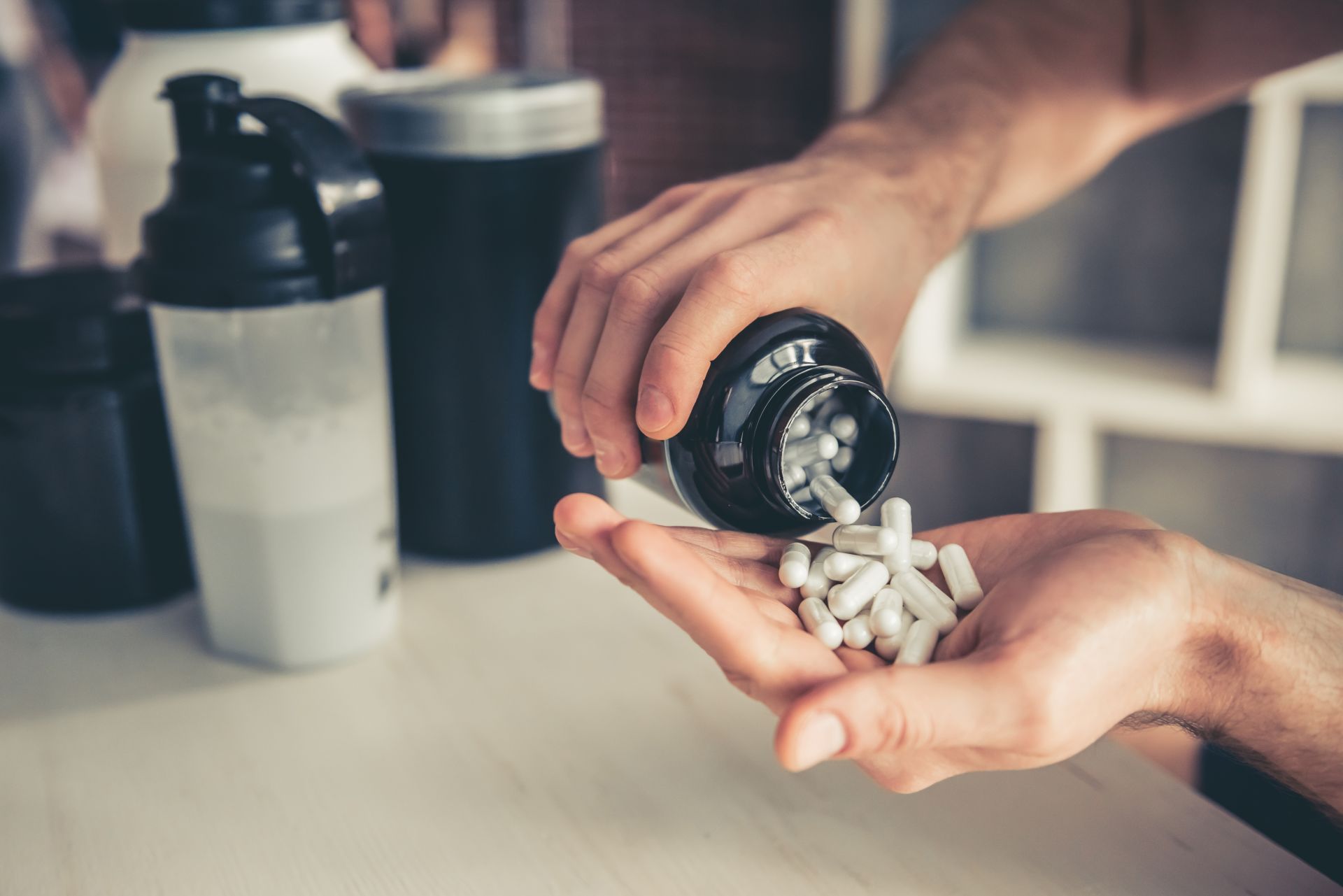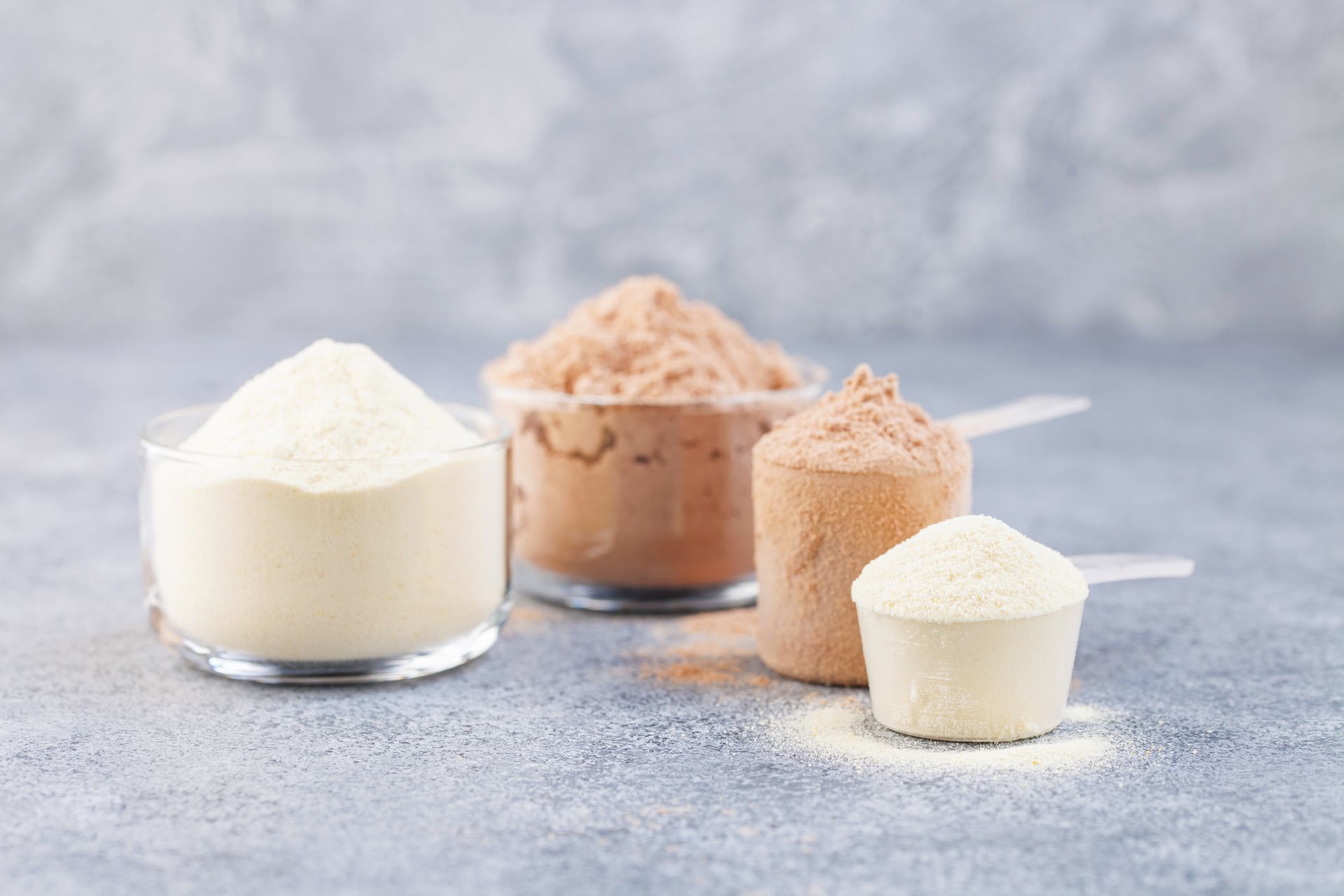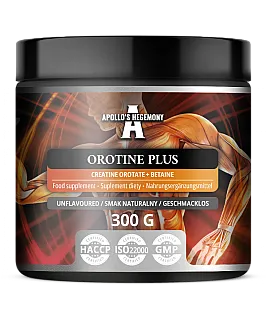Creatine citrate - action and application.

Creatine is among the most widely used dietary supplements by people who regularly engage in sports. There are many types of creatine available on the market, and one of them is citrate. Let's find out what creatine citrate is, how it works and how to use it.
- Creatine - what is it?
- Creatine - types
- What is creatine citrate?
- Creatine citrate - effects
- Creatine citrate - how to use?
- Creatine citrate - what to combine with?
Creatine - what is it?
Creatine is an organic chemical compound that is naturally produced in the human body from amino acids such as arginine, glycine and methionine, mainly in the kidneys and liver at about 1 g per day. It is well known that creatine enhances athletic performance and efficiency and accelerates the rate of post-workout recovery of skeletal muscle. Most creatine is stored in skeletal muscle (95%), where it exists in the form of free creatine (40%) and phosphocreatine (60%). Creatine and phosphocreatine provide the energy needed for short-term intense exercise. It is estimated that creatine is taken in with food at about 1-2 g per day in people who regularly consume meat (especially beef and pork), fish (e.g., herring, tuna) and seafood in their diet. Creatine levels in muscle and blood, on the other hand, are reduced in vegetarians who consume little or no animal products in their diet (vegans). For more on creatine, see this topic.
Creatine - types
Creatine is one of the best researched and most effective dietary supplements for athletes**. The dietary supplement market now offers various forms of creatine, the right combination of which is sometimes even found in a single product**, referred to as a creatine stack. In nutritional stores, you can find formulations containing the following forms of creatine with different percentages of creatine:
-
Creatine Anhydrous (100%),
-
Creatine monohydrate (87.9%),
-
Creatine ethyl ester (82.4%),
-
Creatine malate 3:1 (74.7%),
-
Creatine methyl ester hydrochloride (72.2%),
-
Creatine malate 2:1 (66%),
-
Creatine Citrate 3:1 (66%),
-
Creatine Pyruvate (60%),
-
Creatine alpha-ketoglutarate (53.8%),
-
Creatine gluconate (40.2%).
What is creatine citrate?
Creatine citrate is an organic chemical compound that is a combination of creatine and citric acid, which consists of 66% creatine. In comparison, creatine monohydrate contains almost 88% creatine. It is suggested that creatine citrate is slightly better soluble in water compared to the most commonly used monohydrate. Current research results provide evidence that creatine citrate can increase blood creatine levels in a similar manner to monohydrate. Creatine citrate supplementation can increase free creatine and phosphocreatine concentrations in muscle by 20-40%. Some literature data confirms that creatine citrate provides ergogenic benefits to consumers, which include improved fitness and performance ora accelerated post-workout recovery.

Creatine citrate - effects
Of all the available forms of creatine that provide an alternative option to the best-researched monohydrate, it is creatine citrate that has been studied most often. However, the results of studies on creatine citrate show a high level of discrepancy. Some studies conducted have shown that creatine citrate can effectively increase lean body mass, anaerobic capacity, skeletal muscle power and maximal isometric strength of the upper extremities. Several studies have reported that creatine citrate contributed to a significant increase in body weight (0.8-1.4 kg), but without significant changes in body fat percentage. In addition, it has been shown that creatine citrate can lead to an increase in the circumference of certain body parts (e.g., forearms), a 20% increase in the rate of muscle contraction, a delay in neuromuscular fatigue and an improvement in physical performance. However, there is a lack of convincing evidence that creatine citrate is more effective in improving athletic performance than the most commonly recommended creatine monohydrate.
Creatine citrate - how to use?
Creatine citrate should be used long-term in the correct daily dose to achieve the desired effects in terms of increasing skeletal muscle strength and power, and increasing lean body mass. There are two ways to use creatine citrate, namely supplementation that takes into account the loading phase and constant low-dose supplementation. During the loading phase, which lasts 5-7 days from the start of supplementation, it is recommended to use creatine citrate in a daily dose of 20 g, which should be divided into 4 equal portions of 5 g each. After 7 days, creatine citrate should be taken for several weeks at a maintenance dose of 5 g per day. The most important advantage of using the loading phase is the rapid increase in creatine concentration in skeletal muscle, which can lead to a visible increase in strength, power and muscle mass, as well as an accelerated rate of post-workout recovery. However, an ever-growing body of scientific evidence indicates that the use of a creatine loading phase for muscle is not absolutely necessary. Indications are that creatine citrate taken in a consistent daily dose of 5 g (sometimes as much as 10 g in two equal portions) is equally effective in increasing intramuscular creatine stores after at least four weeks.
Creatine citrate - what to combine with?
Creatine citrate is recommended to be taken with a meal that is a good source of protein and carbohydrates. Consumption of protein and carbohydrates increases the secretion of insulin, which is a hormone that facilitates the transport of creatine into muscle cells. It's also a good idea to take creatine citrate with the first meal after weight training to intensify gains in power, strength and muscle mass. Creatine citrate can be combined with beta-alanine to increase power, strength and muscular endurance, as well as improve body composition and reduce neuromuscular fatigue. Besides, the most recent scientific reports show that creatine combined with sodium bicarbonate (baking soda) can have a beneficial effect on physical performance parameters in physically active people.
Sources:
-
Jäger R, Metzger J, Lautmann K, et al: The effects of creatine pyruvate and creatine citrate on performance during high intensity exercise. J Int Soc Sports Nutr. 2008 Feb 13;5:4. https://pubmed.ncbi.nlm.nih.gov/18269769/
-
Cooper R, Naclerio F, Allgrove J, et al: Creatine supplementation with specific view to exercise/sports performance: an update. J Int Soc Sports Nutr. 2012 Jul 20;9(1):33. https://pubmed.ncbi.nlm.nih.gov/22817979/
-
Escalante G, Gonzalez AM, St Mart D, et al: Analysis of the efficacy, safety, and cost of alternative forms of creatine available for purchase on Amazon.com: are label claims supported by science? Heliyon. 2022 Dec 6;8(12):e12113. https://pubmed.ncbi.nlm.nih.gov/36544833/
-
Kreider RB, Jäger R, Purpura M.: Bioavailability, Efficacy, Safety, and Regulatory Status of Creatine and Related Compounds: A Critical Review. Nutrients. 2022 Feb 28;14(5):1035. https://pubmed.ncbi.nlm.nih.gov/35268011/
-
Fazio C, Elder CL, Harris MM.: Efficacy of Alternative Forms of Creatine Supplementation on Improving Performance and Body Composition in Healthy Subjects: A Systematic Review. J Strength Cond Res. 2022 Sep 1;36(9):2663-2670. https://pubmed.ncbi.nlm.nih.gov/36000773/
-
https://www.ais.gov.au/nutrition/supplements/group_a#creatine
 ⮜ Previous article
⮜ Previous article
What is the difference between a plant protein supplement and an animal protein supplement?
 Next article ⮞
Next article ⮞
